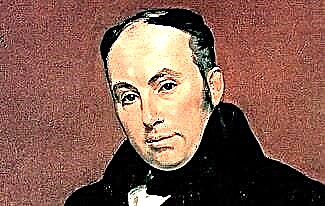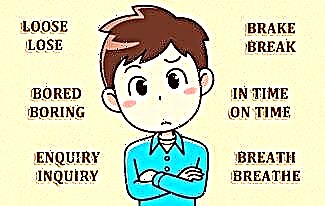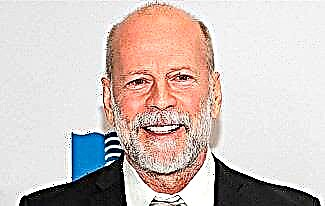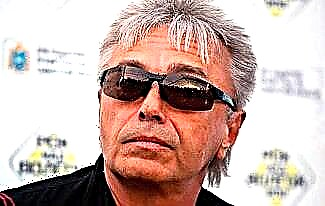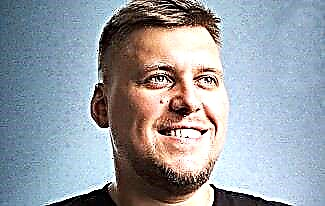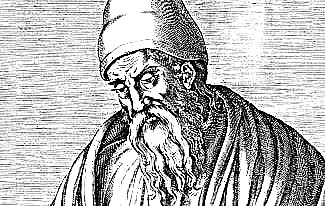Plato - Ancient Greek philosopher, student of Socrates and teacher of Aristotle. Plato is the first philosopher whose works were not preserved in short passages quoted by others, but in full.
In the biography of Plato, there are many interesting facts related to his personal life and philosophical views.
So, before you is a short biography of Plato.

Biography of Plato
The exact date of Plato's birth is still unknown. It is believed that he was born at the turn of 429 and 427 BC. e. in Athens, and possibly on the island of Aegina.
Between the biographers of Plato, disputes about the name of the philosopher still do not subside. According to one opinion, in reality he was called Aristocles, while Plato was his nickname.
Childhood and youth
Plato grew up and was raised in an aristocratic family.
According to legend, the father of the philosopher, Ariston, came from the family of Codra - the last ruler of Attica. Plato's mother, Periktion, was a descendant of the famous Athenian politician and poet Solon.
The parents of the philosopher also had a girl Potona and 2 boys - Glavkon and Adimant.
All four children of Ariston and Periktion received a general education. It is worth noting that Plato's mentor was the pre-Socratic Cratilus, a follower of the teachings of Heraclitus of Ephesus.
In the course of his studies, Plato mastered literature and visual arts best of all. Later, he became seriously interested in wrestling and even took part in the Olympic Games.

Plato's father was a politician who strove for the well-being of his country and its citizens.
For this reason, Ariston wanted his son to become a politician. However, Plato did not like this idea very much. Instead, he took great pleasure in writing poetry and plays.
Once, Plato met a mature man with whom he began a dialogue. He was so impressed by the reasoning of the interlocutor that he was indescribable delight. This stranger was Socrates.
Philosophy and views
Socrates' ideas were strikingly different from the views of that time. In his teachings, the main emphasis was on the knowledge of human nature.
Plato listened attentively to the philosopher's speeches, trying to penetrate as deeply as possible into their essence. He repeatedly mentioned his impressions in his own works.
In 399 BC. Socrates was sentenced to death, accused of not honoring the gods and promoting a new faith that corrupted the youth. The philosopher was allowed to make a defense speech, before the death sentence in the form of drinking poison.

The execution of the mentor had a serious impact on Plato, who hated democracy.
Soon, the thinker went on a journey to different cities and countries. During this period of his biography, he managed to communicate with many followers of Socrates, including Euclid and Theodore.
In addition, Plato communicated with mystics and Chaldeans, who prompted him to get carried away with Eastern philosophy.
After long travels, the man came to Sicily. Together with the local military leader Dionysius the Elder, he set out to found a new state in which the supreme power was to belong to philosophers.
However, Plato's plans were not destined to come true. Dionysius turned out to be a despot who hated the thinker's "state".
Returning to his native Athens, Plato made some amendments regarding the creation of an ideal state structure.
The result of these reflections was the opening of the Academy, in which Plato began to train his followers. Thus, a new religious and philosophical association was formed.
Plato gave knowledge to students through dialogues, which, in his opinion, allowed a person to best know the truth.
The teachers and students of the Academy lived together. An interesting fact is that the famous Aristotle was also a native of the Academy.
Ideas and discoveries
Plato's philosophy is based on the theory of Socrates, according to which true knowledge is possible only in relation to non-subjective concepts that make up an independent incorporeal world, coexisting with the sensible world.

Being is absolute essences, eidos (ideas), which are not influenced by space and time. Eidos are autonomous, and, therefore, only they can be cognized.
In the writings of Plato "Critias" and "Timaeus" the history of Atlantis, which is an ideal state, is first encountered.
Diogenes of Sinop, who was a follower of the Cynic school, repeatedly entered into heated debates with Plato. However, Diogenes argued with many other thinkers.
Plato condemned bright displays of emotions, believing that they do not bring anything good to a person. In his books, he often described the relationship between the stronger and the weaker sex. This is where the concept of "platonic love" comes from.
In order for the students to come to class on time, Plato invented a device based on a water clock that gave a signal at a given time. This is how the first alarm clock was invented.
Personal life
Plato advocated the rejection of private property. Also, he preached the community of wives, husbands and children.
As a result, all women and children became common. Therefore, it is impossible to single out one wife in Plato, just as it is impossible to accurately determine his biological children.

Death
In the last days of his life, Plato worked on a new book, "On the Good as Such", which remained unfinished.
The philosopher died naturally, having lived a long and fulfilling life. Plato died in 348 (or 347) BC, having lived for about 80 years.
Photo of Plato



